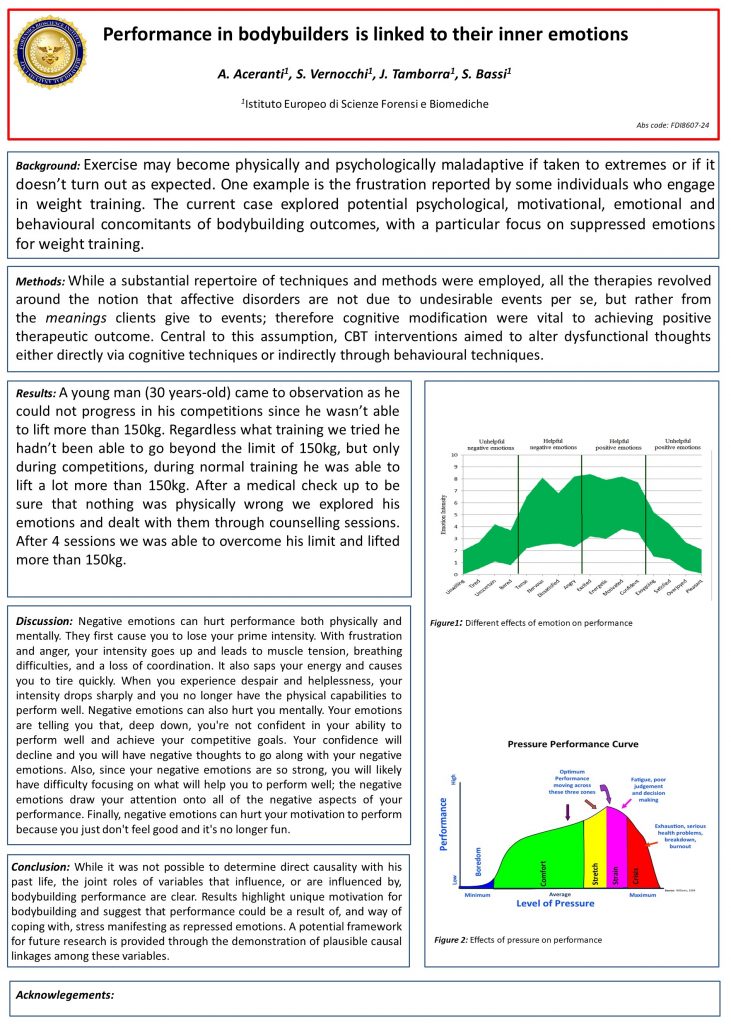Background: Exercise may become physically and
psychologically maladaptive if taken to extremes or if it doesn’t turn out as
expected. One example is the frustration reported by some individuals who
engage in weight training. The current case explored potential psychological,
motivational, emotional and behavioural concomitants of bodybuilding outcomes,
with a particular focus on suppressed emotions for weight training.
Methods: While a substantial repertoire of techniques and methods were employed, all the therapies revolved around the notion that affective disorders are not due to undesirable events per se, but rather from the meanings clients give to events; therefore cognitive modification were vital to achieving positive therapeutic outcome. Central to this assumption, CBT interventions aimed to alter dysfunctional thoughts either directly via cognitive techniques or indirectly through behavioural techniques.
Results: A young man (30 years-old) came to observation as he could not progress in his competitions since he wasn’t able to lift more than 150kg. Regardless what training we tried he hadn’t been able to go beyond the limit of 150kg, but only during competitions, during normal training he was able to lift a lot more than 150kg. After a medical check up to be sure that nothing was physically wrong we explored his emotions and dealt with them through counselling sessions. After 4 sessions we was able to overcome his limit and lifted more than 150kg.
Discussion: Negative emotions can hurt performance both physically and mentally. They first cause you to lose your prime intensity. With frustration and anger, your intensity goes up and leads to muscle tension, breathing difficulties, and a loss of coordination. It also saps your energy and causes you to tire quickly. When you experience despair and helplessness, your intensity drops sharply and you no longer have the physical capabilities to perform well. Negative emotions can also hurt you mentally. Your emotions are telling you that, deep down, you’re not confident in your ability to perform well and achieve your competitive goals. Your confidence will decline and you will have negative thoughts to go along with your negative emotions. Also, since your negative emotions are so strong, you will likely have difficulty focusing on what will help you to perform well; the negative emotions draw your attention onto all of the negative aspects of your performance. Finally, negative emotions can hurt your motivation to perform because you just don’t feel good and it’s no longer fun.
Conclusion: While it was not possible to determine direct causality with his past life, the joint roles of variables that influence, or are influenced by, bodybuilding performance are clear. Results highlight unique motivation for bodybuilding and suggest that performance could be a result of, and way of coping with, stress manifesting as repressed emotions. A potential framework for future research is provided through the demonstration of plausible causal linkages among these variables.
Authors: A. Aceranti, S. Vernocchi, J. Tamborra, S. Bassi
Published: Italian Journal of Medicine, Sept 2018
Presented: Poster FDI8607-24 at the FADOI National Congress 2018


